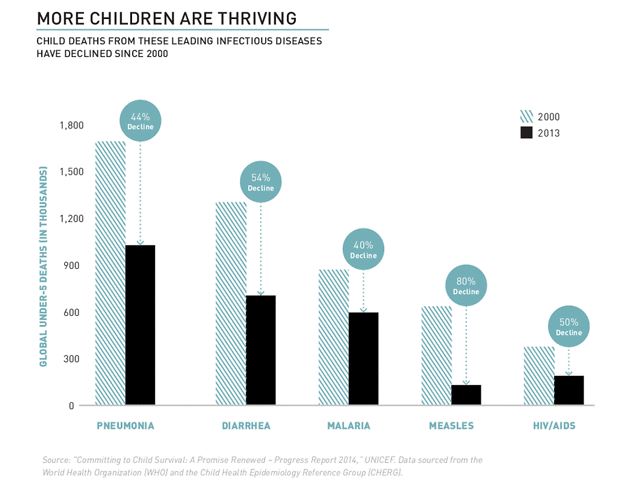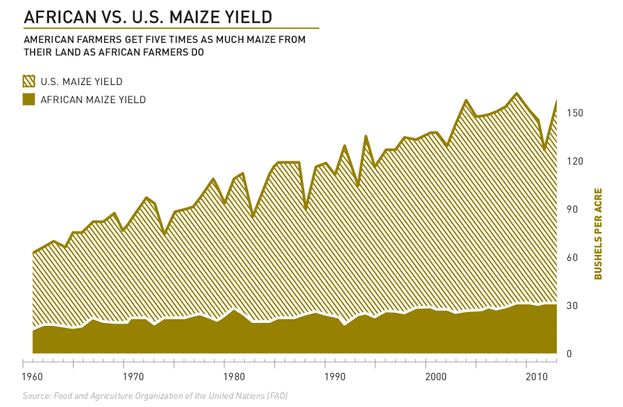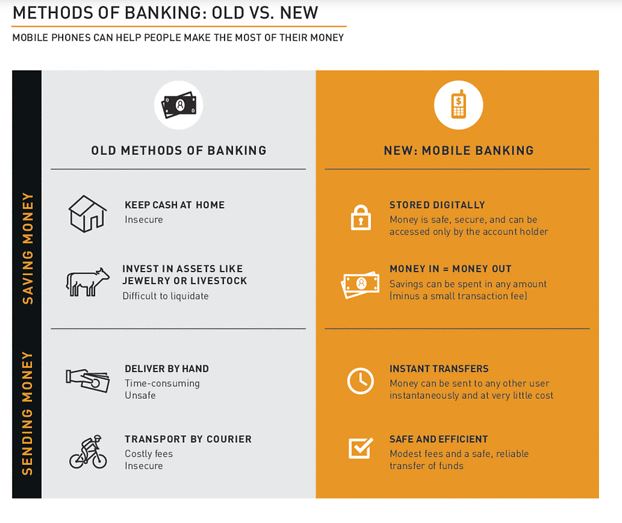Bill Gates Wants To See African Living Standard Surpass America’s Before 2030 – Ventures Africa

VENTURES AFRICA – Sub-Saharan Africa is home to nine of the 10 poorest countries in the world, with about 48 percent of people in the region living on less than $1.25 a day. But the world’s richest man believes this will change drastically by 2030.
Bill and Melinda Gates, founders of the Bill & Melinda Gates Foundation, who are known for their philanthropic work in fighting diseases in Africa, have taken up a fresh challenge as they celebrate the 15th anniversary of their foundation. In the 2015 Gates Annual Letter, the couple released their big bet for the future.
“The lives of people in poor countries will improve faster in the next 15 years than at any other time in history. And their lives will improve more than anyone else’s,” the letter titled Our Big Bet For The Future read.
The Third Bet
The couple admits that some people would see their goal as unattainable and irrational, but this is not the first time the Gateses are making ‘irrational’ bets. About 40 years ago, Bill Gates and his childhood friend, Paul Allen bet that software and personal computers would change the way people around the world worked and played. The bet turned out well. A second bet was in 2000, when Bill and Melinda started their foundation, with the idea that by backing innovative work in health and education, we could help dramatically reduce inequity. Africa can testify to the success record so far by the Foundation.
The philanthropists are putting everything into realizing this ambitious goal. “We’re putting our credibility, time, and money behind this bet—and asking others to join us—because we think there has never been a better time to accelerate progress and have a big impact around the world.”
They think there will be major breakthroughs for most people in poor countries in the next 15 years. They will enjoy longer lives, better health, improved education, nutritious food, and benefit from mobile banking. The Gateses expect four major breakthroughs:
Health Breakthrough
The Bill & Melinda Gates Foundation has spent millions of dollars on healthcare in Africa and other developing countries, but it is not done yet. The founders are committed to ensuring child mortality reduces by half and more diseases eradicated.
“In 1990, one in 10 children in the world died before age 5. Today, it’s one in 20. By 2030, that number will be one in 40,” the couple wrote.
They intend to achieve this by making sure that almost all countries include vaccines for diarrhea and pneumonia, two of the biggest killers of children, in their immunization programs. They will also preach better sanitation—through simple actions like handwashing as well as innovations like new toilets designed especially for poor places. These they claimed will cut the spread of disease dramatically.
They also hope to reduce the number of children who die in childbirth by two thirds, wipe polio and three other diseases off the face of the earth, find the secret to the destruction of malaria, and force HIV to a tipping point.
“The world is going to make unprecedented progress in global health,” the couple predicted.
Farming Breakthrough
Seven out of ten people living in sub-Saharan Africa are farmers. Despite this, about 30 percent of the population were hungry in 2010. The region rely on imports and food aid to feed itself, with Nigeria, Africa’s largest economy, said to be spending over $4 billion on rice importation annually. The continent as a whole spends $50 billion a year buying food from richer countries. This is partly because African farmers are not productive enough.
“There’s a related problem,” the Foundation notes, “which is that the food most Africans eat is not nutritious or varied enough to make up a healthy diet.” Approximately one in three people living in sub-Saharan Africa are undernourished. This affects cognitive and physical development of children. However, innovations in farming will change these by 2030. Better fertilizer has already been developed, as well as crops that are more productive, nutritious, and drought- and diseaseresistant; with access to these and other existing technologies, African farmers will be able to double their yield. Africa will thus be able to feed itself.
“With the right investments, we can deliver innovation and information to enough farmers in Africa to increase productivity by 50 percent for the continent overall,” the letter read.
Banking and Education
The last two breakthroughs the Gateses will be working towards in the next 15 years are banking and education. The Foundation noted that mobile banking will help the poor radically transform their lives. This is evident in Kenya, the east African country that prides itself as the world’s leader in mobile banking, thanks to its M-PESA mobile money platform. A study found out that a lot of start-ups have been spawned on the availability of a reliable mobile-payments platform in Nairobi, Kenya’s capital city. Millions of he unbanked population in sub-Saharan African can now have access to financial services through the use of mobile money, a market, which could be worth as much as $1.3 billion by 2019, according to new data from U.S.-based marketing analysis firm Frost & Sullivan.
This growth will continue, according to Bill Gates, as 2 billion people who do not have a bank account today will be storing money and making payments with their phones by 2030.
The philanthropists also projects a revolution in learning through better software. The couple says online courses will be a global asset and will be available to everyone with a phone or tablet.
“As high-speed cell networks grow and smartphones become as cheap as today’s voice-only phones, online education will flourish,” the letter read. For several African countries, this will be a revolution in education.
They noted however that software will never replace teachers, but can play a very crucial role in education.
Gates noted that these breakthroughs will be driven by innovation in technology—ranging from new vaccines and hardier crops to much cheaper smartphones and tablets—and by innovations that help deliver those things to more people.








